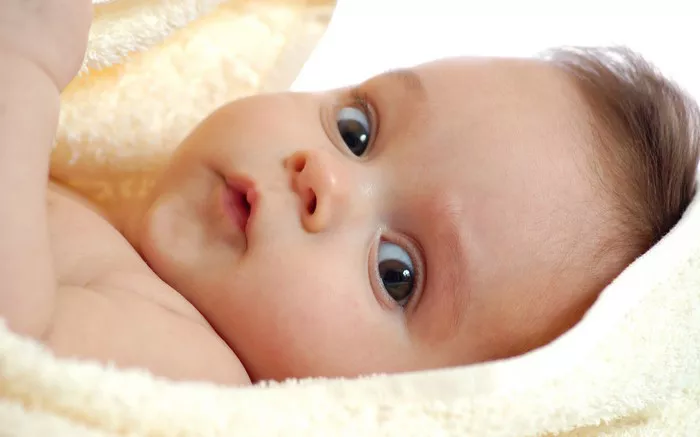When your 2-month-old baby catches a cold, it can be a stressful experience for any parent. At this tender age, babies are highly vulnerable, and their immune systems are still developing. Knowing how to care for your little one during this time is crucial. This article will guide you through safe and effective ways to manage your baby’s cold, while also addressing the psychological impact on both the baby and the parents.
Understanding Colds in Infants
What Causes a Cold in a 2-Month-Old?
A cold is typically caused by a viral infection, most commonly the rhinovirus. Babies are more susceptible to colds because their immune systems are not yet fully developed. They can catch a cold from close contact with family members, caregivers, or even from touching contaminated surfaces19.
Symptoms to Watch For
- Common symptoms of a cold in a 2-month-old include:
- Runny or stuffy nose
- Sneezing
- Mild cough
- Slight fever (usually below 100.4°F or 38°C)
- Irritability or fussiness
Difficulty feeding due to nasal congestion
Safe Treatments for a 2-Month-Old with a Cold
Consult a Pediatrician First
Before giving any medication or trying home remedies, it’s essential to consult your pediatrician. Over-the-counter cold medicines are not recommended for infants under 2 years old due to potential side effects and risks.
Nasal Saline Drops and Suction
Nasal congestion is one of the most uncomfortable symptoms for babies. Using saline nasal drops can help loosen mucus, making it easier to remove with a bulb syringe or nasal aspirator. This method is safe and effective for relieving nasal blockage.
Hydration is Key
Ensure your baby stays hydrated by offering frequent feedings of breast milk or formula. Hydration helps thin mucus and keeps your baby comfortable. If your baby is reluctant to feed due to congestion, try feeding in smaller, more frequent amounts.
Humidifiers and Steam
Using a cool-mist humidifier in your baby’s room can help keep the air moist, reducing nasal congestion. Alternatively, you can sit with your baby in a steamy bathroom for a few minutes to help ease breathing.
Elevate the Head
Elevating your baby’s head slightly during sleep can help reduce nasal congestion. Place a rolled towel under the mattress (not directly under the baby’s head) to create a gentle incline.
Comfort Measures
- Skin-to-Skin Contact: Holding your baby close can provide comfort and reduce stress for both of you.
- Gentle Massage: A light back rub can help soothe your baby and promote relaxation.
Psychological Considerations for Parents and Babies
The Emotional Impact on Parents
Seeing your baby sick can be emotionally challenging. Parents often feel helpless, anxious, or guilty. It’s important to acknowledge these feelings and seek support from family, friends, or healthcare professionals. Remember, colds are common and usually resolve on their own with proper care.
The Baby’s Emotional State
Babies can sense their parent
s’ stress, which may make them more fussy or irritable. Maintaining a calm and reassuring demeanor can help your baby feel more secure. Gentle rocking, singing, or playing soft music can also provide comfort.
Building Resilience
While it’s natural to want to protect your baby from every illness, mild colds can actually help build their immune system. Each exposure to a virus helps their body learn to fight infections more effectively in the future.
What NOT to Do
Avoid Over-the-Counter Medications
Medications like cough syrups, decongestants, or antihistamines are not safe for infants under 2 years old. They can cause serious side effects, including rapid heart rate, seizures, or even death.
Do Not Use Home Remedies Without Consulting a Doctor
Some home remedies, such as essential oils or herbal teas, can be harmful to infants. Always check with your pediatrician before trying any new treatment45.
Avoid Exposure to Smoke or Strong Odors
Cigarette smoke, strong perfumes, or cleaning products can irritate your baby’s respiratory system and worsen cold symptoms. Keep your baby’s environment clean and smoke-free.
When to Seek Medical Attention
While most colds in infants are mild and resolve on their own, certain symptoms require immediate medical attention:
- High fever (above 100.4°F or 38°C)
- Difficulty breathing or rapid breathing
- Persistent cough or wheezing
- Refusal to eat or drink
- Unusual lethargy or irritability.
Conclusion
Caring for a 2-month-old with a cold requires patience, vigilance, and a focus on comfort. By following safe practices and consulting your pediatrician, you can help your baby recover smoothly. Remember, your emotional well-being is just as important as your baby’s physical health. Stay calm, seek support when needed,and trust that your baby’s immune system is learning to grow stronger with each challenge.
For more detailed guidance, always consult your pediatrician or trusted healthcare provider. Your baby’s health and safety are worth every precaution.
Related topics:
Caring for Your 6-Month-Old with a Cold: Tips & Tricks
What Month Is The Highest Risk Of Sids?
U.S. School Vaccination Rates Drop As Exemption Numbers Reach New…


